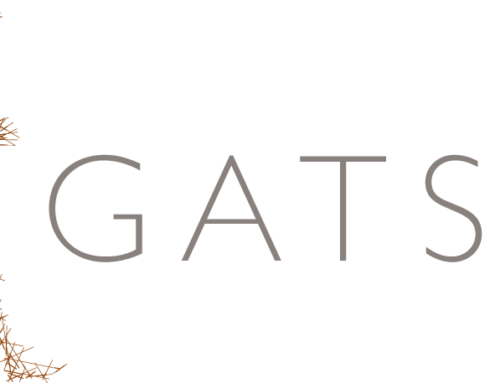Going to university is a big step with many critical decisions to be made. Choosing a university and subject to study is just the start. For some students this decision is harder because they identify as LGBTQ+. As well as everything already mentioned, these students will want to find a university that will welcome them and allow them to be their authentic selves. These students may have gone through their compulsory education with no problem at all, or they may be seeking an opportunity to leave bullying and discrimination behind. They may or may not yet be ‘out’. Regardless of their situation, they’ll want to fit in at their chosen university. As education professionals, it’s imperative that you can advise these students and support them to make an informed choice.

Here’s a few pointers to help you to help them:
Stonewall – Does the university website or marketing materials show a Stonewall Diversity Champion or Top 100 Employer icon? Stonewall is the largest Lesbian, Gay, Bisexual and Transgender (LGBT) rights charity in Europe. By participating in Stonewall programmes, a university is demonstrating that it supports and promotes fair practice in relation to the employment of lesbian, gay, bisexual and transgender staff, and are committed to equality for LGBTQ+ staff and students.
Rainbow lanyards – Is there evidence of staff or students wearing their university rainbow lanyards in university marketing materials, prospectuses, or websites? When attending open days, are staff wearing rainbow lanyards? This is usually an indication that there’s an active drive within the university to visibly align themselves as allies to the LGBTQ+ community and is a good indicator that the university is a safe environment for LGBTQ+ students and staff.
News or blog articles – Do they celebrate their LGBTQ+ history? Are they proud of their inclusivity and diversity? Taking a quick scroll through their blog or recent news articles on their website, will not only provide a great insight into the university and what its values are, but may also reveal some interesting reading regarding the universities’ LGBTQ+ history.
Social media – Students use social media a lot when wanting to find out about things. Choosing their university is no different. Universities are very aware of this and utilise social media platforms such as Facebook, LinkedIn, Twitter, and Instagram. By looking at graduation pictures, for example, on a university’s Instagram feed, students will be able to see the diversity of graduates at each university. Through social media posting, universities will also showcase work they have done in the community, including anything related to the LGBTQ+ community.
LGBTQ+ accommodation options – If students are hoping to secure a place within a hall of residence and would feel more comfortable within an LGBTQ+-friendly environment, it’s worth them investigating the options available at their chosen university. If a student is transitioning or considering transitioning during their time at university, they’ll need to factor this in when looking at accommodation options. Viewing the different types of accommodation during an open day is an excellent idea if possible. Encourage students to find out about the gender mix of the accommodation available, the bathroom situation such as en-suite or shared facilities, and how many people will share the kitchen and living spaces. Proximity to the city centre and campus are important considerations too.
Pride participation – Alongside businesses and community groups, many universities will participate in the local pride march and associated activities, and some help sponsor it. Student union blogs and university website news articles usually publicise a university’s involvement in community events like Pride. Looking on the Pride Facebook pages should reveal who the sponsors are too.
LGBTQ+ student society – Joining a group or a society once at university is something many students look forward to doing, often the more unusual the better! Joining the LGBTQ+ society is an excellent way of meeting new friends, creating a support network and learning about the best local LGBTQ+-friendly places to go when not on campus. If the student is interest in campaigning, the societies are a good place to start for this type of activity too. Details of all groups and societies can usually be found on the Student Union pages. But rather than just seeing that a group or society exists, it’s worth the student contacting the Student Union to see how active a group is and the type of activities they offer.
LGBTQ+ mentoring scheme – Many universities, in a bid to support certain groups of students, will set up targeted mentoring schemes. The student support pages of the university website usually include details of such schemes. Being involved with a mentoring scheme is usually an excellent way for a student to speak with a person that may well become a role model to them. Sometimes mentors are linked to specific industries or career areas and others are more general.
LGBTQ+ careers advice – Every university offers careers advice to its students, but do they have the specialist knowledge to enable them to accurately advise any LGBTQ+ student who may approach them seeking support? The student support pages of the university’s website should advertise all of the support on offer, and this should include any careers advice services too.
Location – As well as researching the university itself, it should go without saying that the students should also look into the city or town where the university is located. What type of reputation does it have for its treatment of LGBTQ+ people? Are there many or any LGBTQ+ venues and how safe, welcoming, and diverse is it?
Ask a student – The final suggestion would be to advise them to speak with a current student at their chosen university. This is usually possible during open days either in person or virtually. In addition, some universities offer online chat facilities where applicants can ask questions and a current student will respond.
UCAS application – When the time comes for the student to complete their UCAS application form, they may seek advice on whether to disclose their sexuality or gender identity. As with a job application, it is the student’s choice to disclose. What needs to be considered is the context within which they may decide to disclose. It could be regarding their choice of university and the fact that they are applying to a specific one due to its LGBTQ+ community, or it could be relevant to the course they’re applying to. There is a standard question which asks their sexuality and offers different options to them. This can be worrying if the student hasn’t yet come out to their family and wishes to keep this information secret. The application form is confidential, and parents, guardians and carers will not be sent a copy of the information included in it, and students should be reassured of this. If they are concerned about this as they’ll be completing the form with their parent or carer, they should be reassured that this is for statistical purposes only and they can always change the information later through the UCAS Hub.
Why is this important?
There are many barriers to higher education that LGBTQ+ students face including ‘bullying, harassment and violence in university spaces’ and, ‘a lack of LGBT-specific careers advice’. These barriers ‘can lead to isolation, poor mental and physical health, low attainment and, in some cases, dropping out altogether’ (Delivering LGBT-inclusive higher education, Stonewall, 2019).
According to the LGBT in Britain – University Report by Stonewall in 2018 ‘Two in five LGBT students (42%) have hidden their identity at university for fear of discrimination. One in four non-binary students (24%) and one in six trans students (16%) don’t feel able to wear clothes representing their gender expression at university.’ This is far from the safe and welcoming place they envisaged, where they could be their true authentic selves.
In a bid for a fresh start and to find a sense of belonging, LGBTQ+ students, and especially those from smaller communities, may choose to attend a university in a large city. This is often due to the access to LGBTQ+ social groups as well as clubs and pubs, which may not have been readily available to them previously. Although a great opportunity, the culture shock alongside the requirements of their studies may add additional stress to what is already a big change for them. In light of the statistics mentioned here, these students will need to be carefully guided and advised to ensure they are fully aware of the impact of their decision, not only upon their social and academic life but also their physical safety and mental wellbeing.

Jude Hanley is an experienced Careers Adviser currently working in Higher Education. She is passionate about equality and diversity and regularly creates content for online magazines, newsletters and web sites. She is a member of the Careers Writers Association and a Fellow of the Higher Education Academy.





